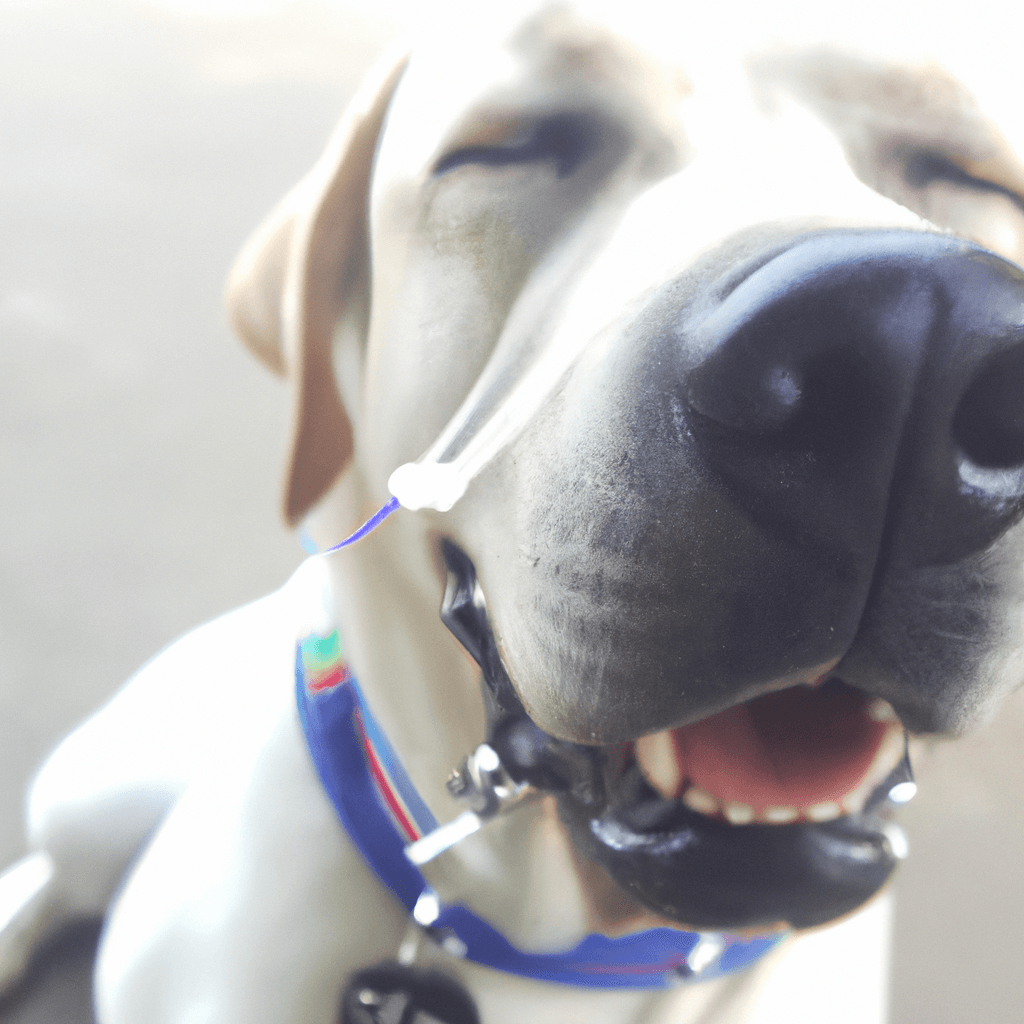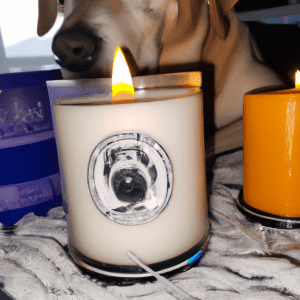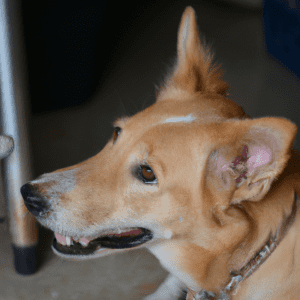Drug dogs are trained to detect the smell of drugs, making them a valuable tool in law enforcement. But can they detect if you’re high? The answer is yes. Drug dogs are trained to detect the chemical compounds of marijuana, cocaine, heroin, and other illegal drugs.
They are also trained to recognize the chemical compounds associated with the human body when someone is under the influence of drugs. This means that drug dogs can not only detect the presence of drugs, but they can also tell if someone is high.
How Do Drug-Sniffing Dogs Recognize if Someone is High?
Drug-sniffing dogs are trained to detect the presence of drugs on people or in their possessions. While they can’t tell if someone is actually high, they can alert their handlers to the presence of drugs in a person’s system.
The dogs are trained to recognize the odors of certain drugs, including marijuana, cocaine, methamphetamine, heroin, ecstasy, and prescription drugs. They can also detect chemicals used to manufacture drugs, such as amphetamines.
The dogs are trained to alert their handlers to the presence of drugs by sitting or barking. When they detect the presence of drugs, they may also paw at the person or object they’ve detected. Drug-sniffing dogs can also detect the presence of drugs in a person’s sweat, saliva, and urine.
This means that even if a person has not recently taken drugs, the dog may still be able to detect them. Drug-sniffing dogs can be helpful in identifying people who are under the influence of drugs, but they should not be relied upon as the sole source of evidence.
Other tests, such as blood and urine tests, are often needed to confirm the presence of drugs in a person’s system.
How Long Do Drug Dog Alerts Last After Someone Has Used Drugs?
Drug dog alerts typically last between 2 to 4 hours after someone has used drugs. However, this can vary depending on the type of drug and how much was used.
The presence and amount of certain drugs can also be detected in sweat and urine for much longer periods of time, up to several days or even weeks after use. This is especially true for drugs like marijuana, which can be detected in urine for up to 30 days after use.
Can Drug Dogs Smell Drugs Through Containers and Bags?
Yes, drug dogs can smell drugs even through containers and bags. Dogs have an incredibly sensitive sense of smell and can detect the scent of drugs even when they are hidden inside containers or bags. Their noses are so powerful that they can even detect drugs that have been sealed in airtight bags or containers.
In fact, drug dogs are trained to search for drugs in all sorts of places, including cars, luggage, and even walls and furniture. They are taught to sniff out specific drugs, and can even differentiate between different types of drugs, such as cocaine and marijuana.
Drug dogs are also used to detect illegal drugs at airports, train stations, and other public places. They are able to detect illegal drugs even when they are hidden inside containers or bags.
In some cases, dogs have even been able to detect drugs that are hidden inside packages or mail. Overall, drug dogs are an incredibly useful tool for law enforcement and can be used to detect drugs even when they are hidden inside containers or bags.
How Accurate Are Drug Dogs in Detecting Drugs?
Drug dogs are pretty accurate when it comes to detecting drugs. They have a strong sense of smell and can easily pick up the scent of drugs, even when they’re hidden. Depending on the breed, drug dogs can be trained to recognize different drugs and even trace them back to their source.
In terms of accuracy, research has found that drug dogs are right around 85-90% of the time. That means that if a drug dog is sniffing around, it’s likely it will detect something if there is an illegal substance present. Of course, this depends on the breed, the training, and the individual dog’s skill set.
The accuracy of drug dogs can also depend on the environment. For example, if there is a lot of noise and activity nearby, the dog might not be able to focus and may miss some drugs. Also, if the drug is stored in a container or package, the dog may not be able to detect it until it is opened.
Overall, drug dogs are an excellent tool for law enforcement to use when searching for drugs. Although they may not be 100% accurate all of the time, they are still a reliable and valuable resource.
Are Drug Dogs Used in Schools and on College Campuses?
Yes, drug dogs are used in schools and on college campuses. Educational institutions are increasingly turning to drug detection dogs for help in keeping their facilities safe and secure. Drug dogs are trained to detect a variety of illegal drugs and can be used to help prevent drug use, distribution, and possession on school grounds and in dorms.
Drug detection dogs are usually specially trained German Shepherds, Labrador Retrievers, or Belgian Malinois. They are trained using positive reinforcement to alert a handler when they detect the presence of drugs.
The dogs are trained to use their sense of smell to identify illegal drugs, such as marijuana, cocaine, heroin, methamphetamine, and ecstasy. The use of drug dogs in schools and on college campuses has become increasingly popular in recent years.
The dogs can be used to conduct random sweeps of school grounds, dorms, and other areas where drugs may be stored or used. They can also be used to search the belongings of students and staff members with probable cause.
Schools and colleges that use drug dogs typically require that the dogs be handled by a certified handler. The handler will ensure that the dog is well-trained and will also be responsible for interpreting the dog’s behavior and alerting the proper authorities if drugs are found.
The use of drug dogs in school and college settings is highly effective and has been shown to reduce the number of drug-related incidents on campus. While drug dogs are not the only answer in the fight against drug use, they can help create a safer and more secure learning environment.
How Do Drug Dogs React When They Find Drugs?
When drug dogs find drugs, they usually respond with a distinctive behavior that’s specific to the dog and the type of drug they’ve found. Typically, drug dogs will bark, sit, or lie down when they’ve detected the presence of drugs.
They may also scratch or paw at the area where the drugs were found. The behaviors may vary depending on the dog’s level of experience and the type of drugs they’ve detected. In some cases, the dog may even show signs of excitement or anticipation.
What Are the Limitations of Drug Dogs in Detecting Drugs?
Drug dogs are often used to detect illegal drugs, but there are several limitations to their accuracy. Firstly, drug dogs are trained to alert to one specific drug and cannot detect all types of drugs. For example, a drug dog trained to alert to marijuana will not be able to detect heroin or cocaine.
Secondly, drug dogs can be easily distracted and their accuracy is affected by environmental factors such as noise, temperature, and the presence of other animals.
Additionally, drug dogs may also alert to legal substances such as food, perfume, and cleaning products, leading to false positives. Finally, drug dogs are not able to detect drugs that are hidden in sealed containers, making them less effective in detecting drugs that are in places that are difficult to access.
What Training do Drug Dogs Receive?
Drug dogs receive extensive training from their handlers to be able to sniff out drugs and other prohibited substances. Depending on the type of drugs the dog is trained to detect, their training can take anywhere from several weeks to several months.
The dogs are first taught to recognize the scent of the drug and differentiate it from other smells. For example, if a dog is being trained to detect marijuana, it will learn the difference between the smell of marijuana and the smell of other plants.
The dog’s handler will also teach it to sit when it detects the smell of the drug. The next step in the training is teaching the dog to search for the drug. The handler will hide the drug in different places and have the dog search for it. The handler will also reward the dog with a treat when it finds the drug.
Finally, the dog will be tested to make sure it can detect the drug in a variety of situations and environments. This includes being able to detect the drug in busy areas, such as airports or stadiums, and being able to detect the drug even when it is hidden in other objects.
Overall, drug dogs receive extensive training to be able to detect drugs and other prohibited substances. With their help, law enforcement officers can identify and confiscate drugs, making our communities safer.
What Are the Pros and Cons of Using Drug Dogs?
- Drug dogs are highly accurate and possess an extraordinary sense of smell that can detect even the smallest trace of drugs. This can help law enforcement officers quickly identify and apprehend criminals and keep drugs off the streets.
- Drug dogs are effective deterrents for drug-related crimes. When criminals know that these animals are on the prowl, they are less likely to commit such offenses.
- Drug dogs are relatively affordable and do not require intensive training or expensive equipment. This makes them a cost-effective solution for law enforcement. Cons:
- Drug dogs can be highly distractible, making it difficult for them to focus on the task at hand. This can lead to false alarms and inaccurate results.
- Drug dogs have a limited range of detection and may not be able to detect drugs that are hidden in areas that are not within their line of sight.
- Drug dogs can be a source of legal issues, as their use may be considered a violation of privacy or civil rights if used without a warrant or probable cause.
1 How Can People Avoid Being Detected by Drug Dogs?
If you want to avoid being detected by drug dogs, the best thing you can do is to not have any drugs on you in the first place! However, there are some other things you can do to reduce the chances of being detected by a drug dog. First, make sure to thoroughly clean any items that may contain traces of drugs.
Drug dogs are trained to detect the scent of drugs, so if there are any traces of drugs on your belongings, the dog may be able to smell them. You should also avoid wearing clothing that has been exposed to drugs, as this can also increase your chances of being detected.
Another tip is to avoid carrying items that may conceal drugs. For example, if you are carrying a backpack or purse, make sure it is not large enough to fit any drugs. The same goes for pockets in your clothing.
Finally, make sure to keep your distance from any drug-sniffing dogs. If the dog is within a certain range, it may be able to detect the scent of drugs on you. So, it is best to stay as far away from the dog as possible.
By following these tips, you can reduce your chances of being detected by a drug dog. However, the only surefire way to avoid detection is to not have any drugs on you in the first place.
In conclusion, drug dogs can smell if someone is high, but it is not an exact science. Dogs are able to detect the presence of certain compounds associated with cannabis, however, the accuracy of the detection can vary depending on factors such as the type of drug, the amount of the drug, and the environment in which the drug is present.




